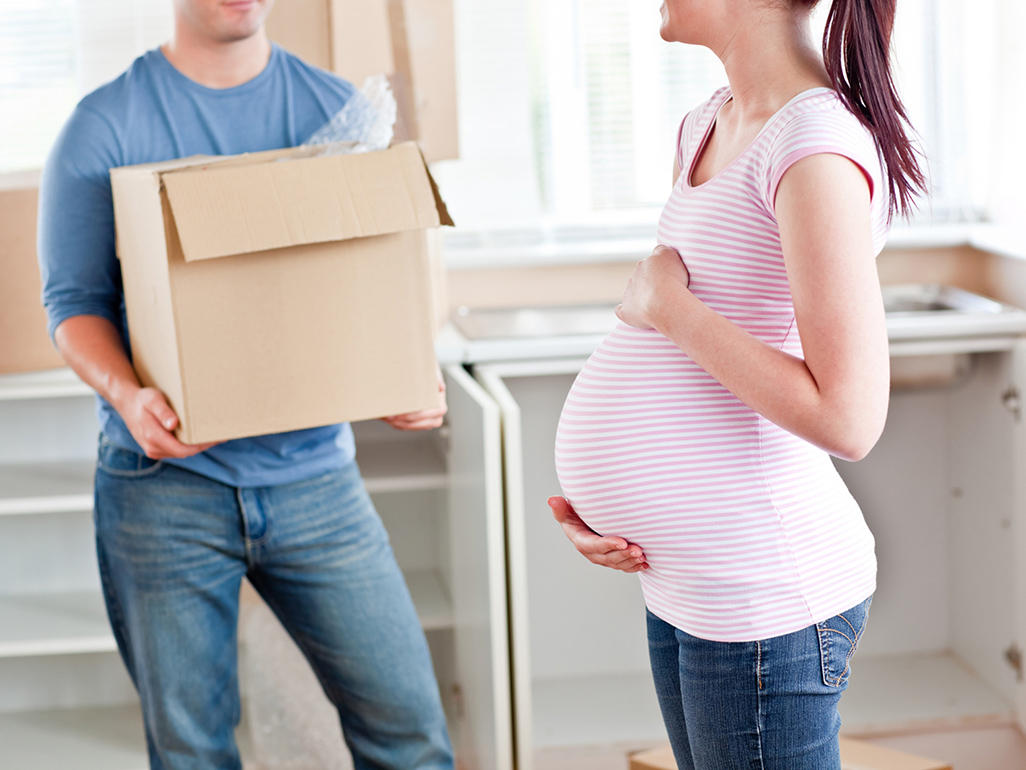Introduction
The journey of pregnancy is a profound experience marked by joy, anticipation, and sometimes, apprehension. Among the myriad of concerns that expectant mothers face, one question often arises: can lifting heavy things cause miscarriage in early pregnancy? It’s a valid concern, one that deserves careful consideration and informed guidance. In this article, we delve into this topic, exploring the intricacies of heavy lifting during early pregnancy and providing empowering insights to navigate this journey safely and confidently.
What is considered heavy lifting and its relevance to pregnancy?
Many women wonder: can lifting heavy things cause miscarriage in early pregnancy? Heavy lifting, typically defined as exerting force beyond one’s normal capacity, can vary greatly depending on individual strength and conditioning. During pregnancy, the definition takes on a new dimension as the body undergoes significant physiological changes to accommodate the growing fetus. Understanding what constitutes heavy lifting in the context of pregnancy involves considering factors such as pre-pregnancy fitness levels, gestational age, and overall health.
The impact of lifting heavy while pregnant on maternal and fetal health
While physical activity is generally encouraged during pregnancy for its numerous benefits, including improved cardiovascular health and mood regulation, lifting heavy weights requires special attention. Excessive strain from heavy lifting can potentially impact both maternal and fetal well-being. It’s essential to recognize the potential risks and adopt appropriate measures to mitigate them.
Risks and Concerns: The potential risks of lifting heavy during pregnancy
Concerns about can lifting heavy things cause miscarriage in early pregnancy are understandable. Heavy lifting during pregnancy poses certain risks that expectant mothers should be aware of. These risks may include increased intra-abdominal pressure, musculoskeletal injuries, and potential complications such as preterm labor or placental abruption. Understanding these risks is crucial for making informed decisions about physical activity during pregnancy.
Early pregnancy is a delicate time marked by rapid fetal development and critical physiological changes in the mother’s body. Concerns about heavy lifting during this period revolve around the potential impact on embryonic implantation, placental development, and overall pregnancy viability. It’s natural for expectant mothers to seek clarity and guidance to ensure the safety of their unborn child.
Guidelines for lifting heavy objects while pregnant
Navigating Can lifting heavy things cause miscarriage in early pregnancy requires a nuanced approach guided by evidence-based recommendations and expert advice. While every pregnancy is unique, there are general guidelines that expectant mothers can follow to minimize risk and promote safety. These guidelines may include avoiding heavy lifting altogether, seeking assistance when necessary, and maintaining proper posture and body mechanics during lifting activities.
Tips for safe lifting techniques
Empowering expectant mothers with practical tips for safe lifting techniques is essential for promoting maternal and fetal well-being. Simple strategies such as bending at the knees rather than the waist, keeping objects close to the body while lifting, and avoiding sudden movements can significantly reduce the risk of injury. Additionally, incorporating regular breaks and staying hydrated can help maintain energy levels and reduce fatigue during lifting tasks.
Pregnancy and Injury
Other actions during pregnancy that can cause injury
As we know lifting heavy loads can cause injury. what other actions can cause injury While heavy lifting is a concern, it’s essential to recognize that other actions during pregnancy can also pose injury risks. Activities such as lifting heavy grocery bags, moving furniture, or even standing for extended periods without proper support can strain the body and increase the risk of musculoskeletal injuries or complications.
Unsafe lifting practices
Can lifting heavy things cause miscarriage in early pregnancy? It’s a common concern among expectant mothers. Overexertion and unsafe lifting practices can have far-reaching implications for both maternal and fetal health. In addition to physical injuries, such as muscle strains or hernias, overexertion can contribute to increased stress levels and fatigue, impacting overall well-being. By adopting safe lifting practices and listening to their bodies, expectant mothers can minimize these risks and enjoy a smoother pregnancy journey.
Factors to Consider
Factors such as weight, gravity, and joint strain in the context of lifting during pregnancy
When assessing the risks associated with lifting heavy objects during pregnancy, several factors come into play. The weight of the object, gravitational forces acting upon it, and the strain exerted on maternal joints and ligaments all contribute to the overall risk level. Expectant mothers must consider these factors and make informed decisions based on their individual circumstances.
Consulting healthcare professionals
Every pregnancy is unique, and what may be safe for one expectant mother may pose risks for another. Consulting healthcare professionals, such as obstetricians or physical therapists, can provide personalized guidance tailored to individual needs and medical history. By working collaboratively with healthcare providers, expectant mothers can navigate the complexities of heavy lifting during pregnancy with confidence and peace of mind.
Mitigating Miscarriage Risks
Concerns about miscarriage risk associated with heavy lifting
The topic of miscarriage is a source of understandable anxiety for expectant mothers, prompting questions about potential risk factors, including heavy lifting. While research on the direct relationship between heavy lifting and miscarriage risk is limited, it’s essential to approach the topic with sensitivity and caution. Understanding the potential risks and taking proactive measures to mitigate them can help alleviate concerns and promote a healthy pregnancy.
While heavy lifting alone is unlikely to cause miscarriage in early pregnancy, it’s essential to consider the broader context of maternal health and well-being. Factors such as pre-existing medical conditions, overall fitness levels, and adherence to safe lifting practices play significant roles in pregnancy outcomes. By focusing on evidence-based insights and adopting a holistic approach to prenatal care, expectant mothers can reduce their risk of complications and enjoy a smoother pregnancy journey.
Empowering Expectant Mothers
Knowledge is power, especially when it comes to navigating the complexities of pregnancy. By providing expectant mothers with accurate information and practical tools for assessing risk, we empower them to make informed decisions about physical activity during pregnancy. Whether it’s modifying lifting techniques, seeking assistance when needed, or opting for alternative forms of exercise, expectant mothers have the agency to prioritize their health and well-being.
Proactive pregnancy care and safe lifting strategies
Empowering expectant mothers with proactive pregnancy care and safe lifting strategies is essential for promoting positive outcomes. Encouraging regular prenatal check-ups, engaging in gentle exercises such as prenatal yoga or swimming, and prioritizing self-care can all contribute to a healthy and fulfilling pregnancy experience. By fostering a supportive environment that values maternal health and autonomy, we empower expectant mothers to embrace their journey with confidence and resilience.
Conclusion
In conclusion, the question of can lifting heavy things cause miscarriage in early pregnancy is a valid concern that deserves careful consideration and informed guidance. While heavy lifting during pregnancy carries certain risks, particularly in the early stages, it’s essential to approach the topic with nuance and perspective. By understanding safe lifting practices, consulting healthcare professionals, and prioritizing maternal health and well-being, expectant mothers can navigate the journey of pregnancy with confidence and peace of mind. Let us embrace this journey together, empowering expectant mothers to embrace their strength and resilience as they embark on this extraordinary chapter of life.
Frequently Asked Questions
Q: Can lifting heavy objects cause miscarriage in early pregnancy?
A: While heavy lifting is generally discouraged during pregnancy, there is limited evidence directly linking it to miscarriage. However, excessive strain from heavy lifting can increase the risk of complications, so it’s best to err on the side of caution and avoid lifting heavy objects if possible.
Q: How much weight is considered safe to lift during early pregnancy?
A: There is no one-size-fits-all answer as the safety of lifting heavy objects during pregnancy depends on various factors such as individual strength, fitness level, and medical history. As a general guideline, it’s advisable to avoid lifting objects weighing more than 25 pounds during early pregnancy.
Q: What are the potential risks of lifting heavy things while pregnant?
A: Lifting heavy objects during pregnancy can increase intra-abdominal pressure, strain muscles, and ligaments, and potentially lead to complications such as preterm labor or placental abruption. It’s important to be mindful of these risks and prioritize safety during pregnancy.
Q: Are there specific lifting techniques that are safer during early pregnancy?
A: Yes, several techniques can help minimize the risk of injury while lifting during pregnancy. These include bending at the knees instead of the waist, keeping objects close to the body, avoiding sudden movements, and seeking assistance when needed.
Can lifting heavy weights improve arthritis during pregnancy?
A: There is some evidence to suggest that strength training, including lifting heavy weights, can improve arthritis symptoms in non-pregnant individuals. However, during pregnancy, it’s important to prioritize safety and consult with healthcare professionals before engaging in any strenuous physical activity.







Leave a Reply